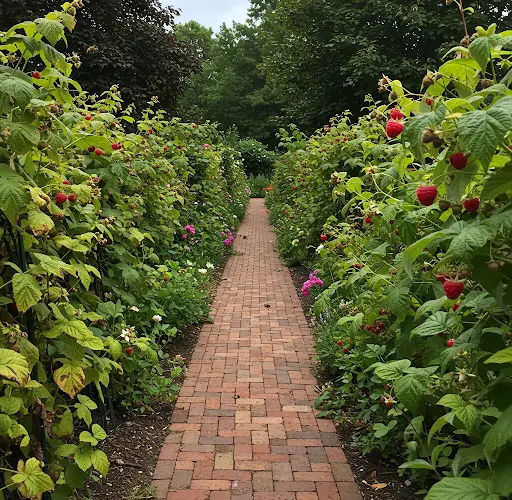To ensure a bountiful raspberry harvest year after year, it is essential to provide the plants with the right nutrients. The first and most important feeding of the season occurs in early spring when the temperature becomes consistently above freezing. Proper spring fertilization strengthens the plants, promotes healthy growth, and protects them from common diseases.
One of the most effective early spring treatments for raspberries is a solution of ferrous sulfate, commonly known as iron sulfate. This compound plays a crucial role in preventing and treating iron deficiencies in plants, which can lead to chlorosis—a condition where leaves turn yellow due to a lack of chlorophyll. Additionally, iron sulfate helps protect raspberry plants from anthracnose, a fungal disease that can severely affect the health and productivity of the bushes.
To prepare an effective raspberry fertilizer using iron sulfate, follow this simple recipe:
Ingredients:
- 10 liters of water
- 300 grams of iron sulfate (ferrous sulfate)
- 2 kilograms of cow manure
Preparation and Application:
- In a large container, dissolve 300 grams of iron sulfate in 10 liters of water. Stir well to ensure the powder is completely dissolved.
- Add 2 kilograms of well-rotted cow manure to the solution and mix thoroughly.
- Let the mixture sit for a few hours to allow the nutrients to blend.
- Once ready, pour the solution directly under the raspberry bushes, ensuring that the roots absorb the nutrients effectively.
Benefits of This Fertilization Method:
- Prevents Iron Deficiency: Iron sulfate provides an essential nutrient that helps raspberries maintain vibrant green foliage and efficient photosynthesis.
- Boosts Disease Resistance: By protecting against chlorosis and anthracnose, this treatment keeps plants healthy and resilient.
- Enriches the Soil: The addition of cow manure improves soil structure, increases microbial activity, and supplies additional nutrients such as nitrogen and potassium.
- Promotes Vigorous Growth: Proper early feeding results in strong root development and increased fruit production.
Additional Spring Raspberry Care Tips:
- Mulching: Apply a layer of organic mulch, such as straw or wood chips, around the base of the plants to retain moisture and suppress weeds.
- Pruning: Remove any weak or dead canes to encourage new growth and improve air circulation.
- Regular Watering: Ensure consistent moisture levels, especially during dry spells, to support plant development.
- Pest Monitoring: Keep an eye out for signs of pests and take action if necessary to prevent damage to the plants.
By incorporating this simple yet powerful fertilization method into your raspberry care routine, you can enjoy a healthy, productive berry patch with abundant harvests season after season.



